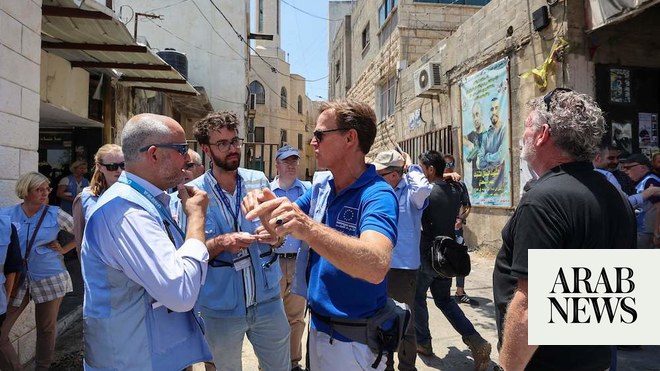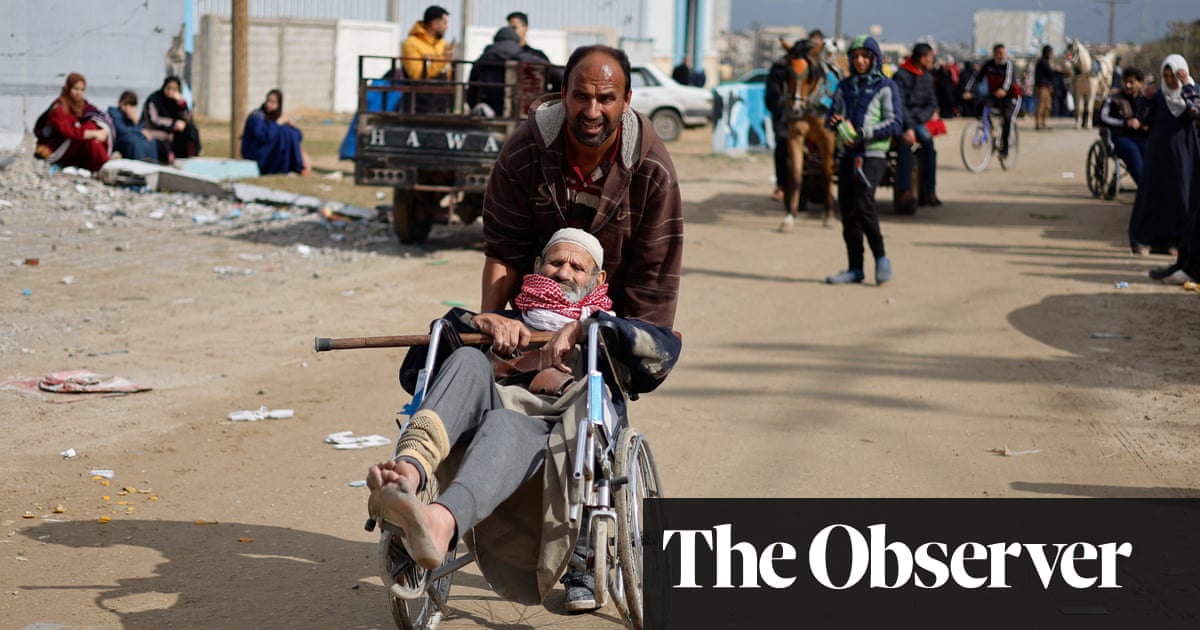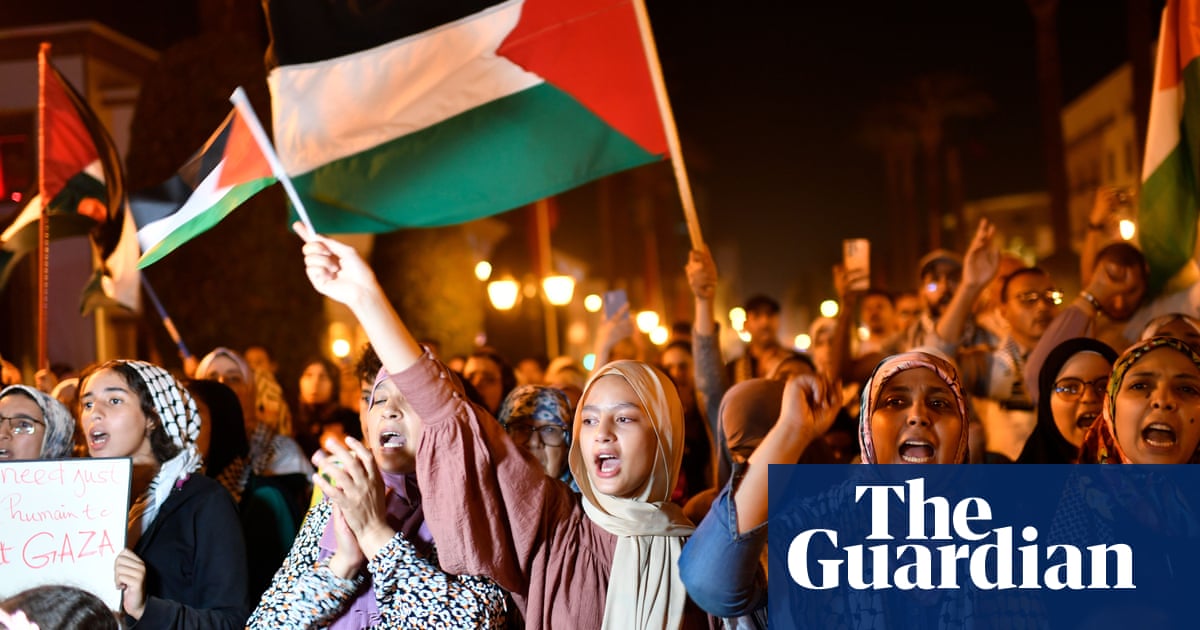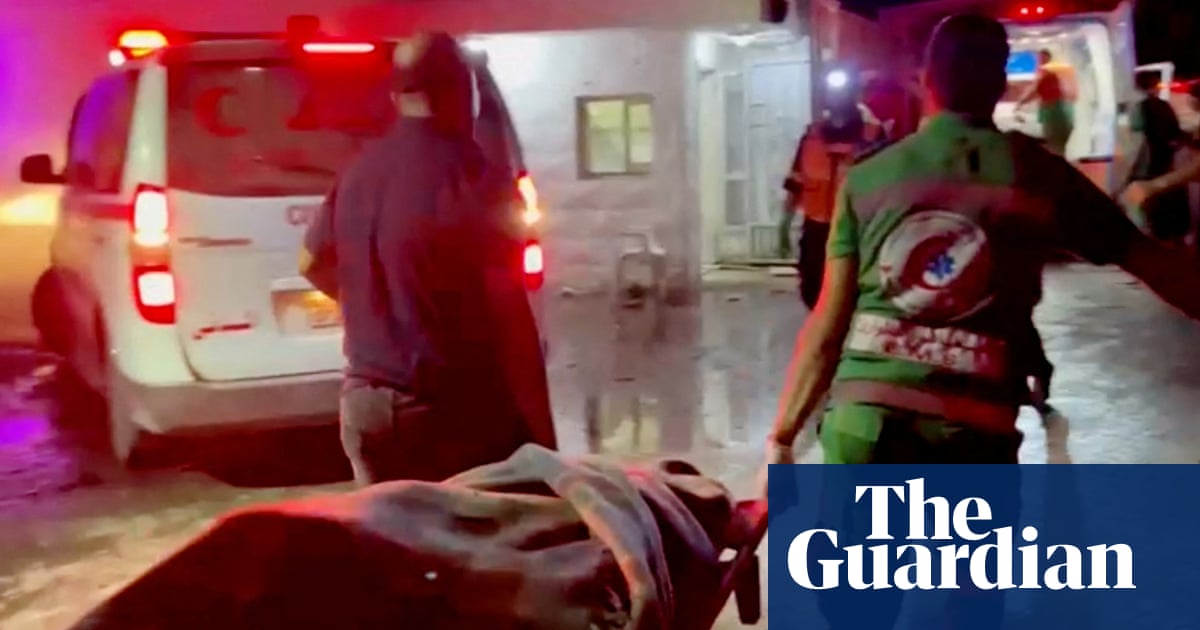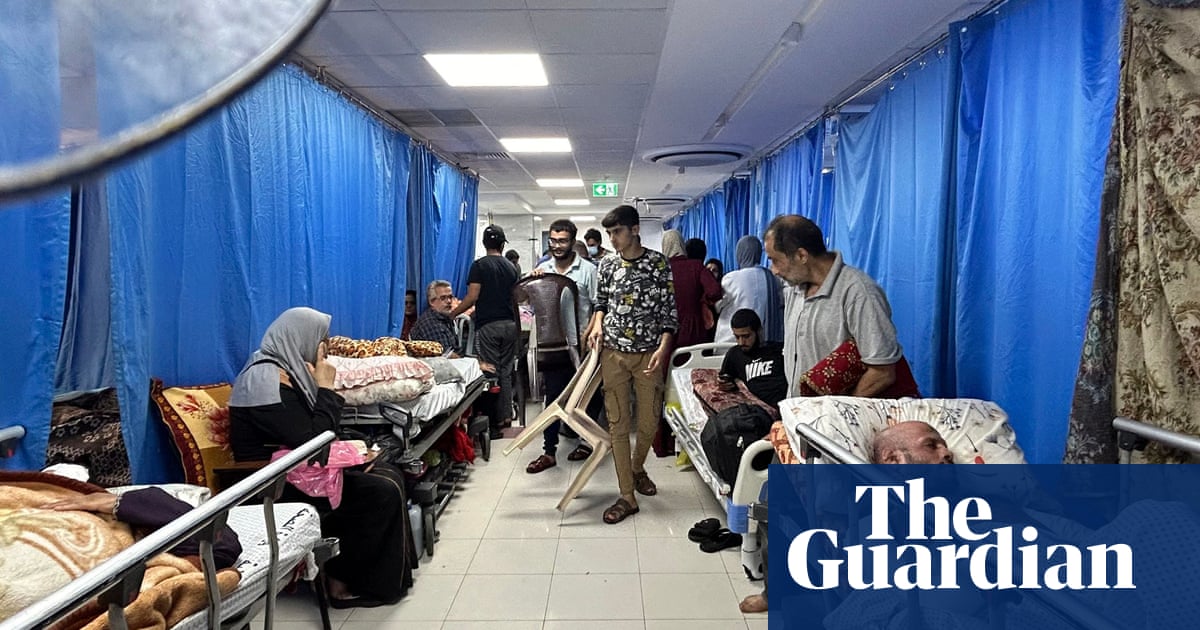
Israel faced an unprecedented wave of international condemnation after its troops entered the Shifa hospital complex in Gaza, while the UN and aid agencies expressed concern about the impact of the raid on staff and patients.
The scale and virulence of the global condemnation from Arab and western governments raised questions about how much longer Israel can continue with its offensive in the face of waning international support.
The US distanced itself from the military takeover of the hospital, saying it had not authorised the Israeli decision.
The UN spoke of carnage in Gaza, and as the pressure rose during the day, Israel relented by announcing it would allow an unlimited number of aid convoys through the Rafah crossing on the Egyptian border. Aid convoys have been limited to as few as 30 trucks a day when the UN said it needed hundreds to relieve starvation.
The sense of crisis engendered by the hospital takeover also led to a breakthrough at the UN in New York, where the security council passed a resolution calling for urgent and extended humanitarian pauses in fighting between Israel and Palestinian Hamas militants in the Gaza Strip for a “sufficient number of days” to allow humanitarian aid access.
After four unsuccessful attempts to take action last month, the US lifted its threat to veto a new resolution prepared by Malta.
The draft resolution, which emphasises the situation of children in almost every paragraph, “requires all parties to respect their obligations under international law, especially regarding the protection of civilians, particularly children”.
It also calls on Hamas to release hostages, but does not explicitly condemn the militant group’s actions.
Earlier on Wednesday, Turkey’s president, Recep Tayyip Erdoğan, led the most unbridled criticism of Israel, calling for its leaders to be tried for war crimes at the international court of justice in The Hague.
“With the savagery of bombing the civilians it forced out of their homes while they are relocating, it is literally employing state terrorism,” Erdoğan said of Israel as he spoke in Turkey’s parliament. “I am now saying, with my heart at ease, that Israel is a terror state.”
Turkey has withdrawn diplomats from Israel amid the country’s response to the 7 October Hamas attack.
Erdoğan’s latest comments drew a fierce response from Israel, where the opposition leader, Yair Lapid, said: “We won’t take lessons in morality from President Erdoğan, a man with an appalling human rights record. Israel is defending itself against brutal terrorists from Hamas-Isis, some of whom have been allowed to operate under Erdoğan’s roof.”
The Canadian prime minister, Justin Trudeau, had earlier enraged Israel by calling on its forces to stop “killing babies”.
The French president, Emmanuel Macron, insisted the west could not recourse to double standards, and said: “We condemn with the greatest firmness all bombings of civilians, in particular of civilian infrastructure which must be protected under our international law and humanitarian law.”
Up against what one Palestinian diplomat described as 1 million citizen journalists in Gaza, Israel is under pressure internationally to produce convincing evidence that the basement of the hospital was being used as a Hamas HQ, as it has claimed.
Troops had found weapons and “terror infrastructure” at one specific location within the hospital, a senior IDF official said. Hamas said the claim was a “blatant lie”. With tensions so high, Israel will struggle to be believed in some countries.
The White House said on Tuesday that it possessed intelligence to show the hospital was being used by Hamas, adding however that it did not support airstrikes on the hospital nor it being the venue for a firefight.
Israeli officials said no fighting had taken place inside the hospital since soldiers arrived during the night.
A Reuters/Ipsos poll found that US public support for Israel’s war is eroding and that most Americans think Israel should call a ceasefire.
When asked what role the US should play, 32% of respondents said “the US should support Israel”, down from 41% in a poll conducted on 12-13 October. Regarding a statement that “Israel should call a ceasefire and try to negotiate”, 68% of respondents said they agreed.
The UN and aid agencies expressed grave concerns about the hospital raid. “I am appalled by reports of military raid at al-Shifa hospital,” the UN humanitarian agency chief, Martin Griffiths, said on X. “The protection of newborns, patients, medical staff and all civilians must override all other concerns. Hospitals are not battlegrounds.”
The World Health Organization director general, Tedros Adhanom Ghebreyesus, said the agency had lost touch with staff at the hospital again. “We’re extremely worried for their and their patients’ safety,” he said.
The International Committee of the Red Cross said it was “extremely concerned about the impact on sick and wounded people, medical staff, and civilians”.
Philippe Lazzarini, the head of the UN Relief and Works Agency for Palestine Refugees, said the agency’s operation in Gaza was on the verge of collapse. “By the end of today, around 70% of the population in Gaza won’t have access to clean water,” he said.
The French foreign ministry said France was deeply concerned about the military operations at al-Shifa. “No use of civilian infrastructure for military purposes is acceptable,” it said. “The Palestinian population should not have to pay for the crimes of Hamas, and even less so the vulnerable, wounded or sick and the humanitarian workers.”
Spain’s prime minister, Pedro Sánchez, urged Israel to end the “indiscriminate killing of Palestinians” in Gaza. “We demand an immediate ceasefire on the part of Israel in Gaza and strict compliance with international humanitarian law, which today is clearly not respected,” he said during a debate in parliament.
The first truck carrying a UN fuel shipment into Gaza since Israel imposed its siege crossed from Egypt on Wednesday, though it will do little to alleviate shortages that have hampered relief efforts.
The delivery was made possible by Israel giving its approval for 24,000 litres of diesel fuel to be allowed into Gaza for UN aid distribution trucks, though not for use at hospitals, according to a humanitarian source.
“This is only 9% of what we need daily to sustain life-saving activities,” Tom White, the director of the UN relief agency in Gaza, posted on X. He confirmed that just over 23,000 litres, or half a tanker, had been received.









